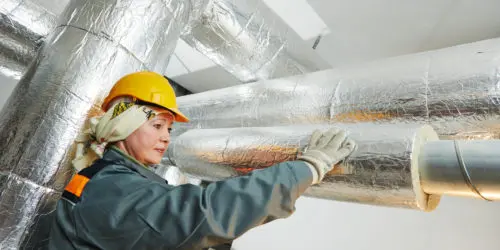Buildings and transportation are the two largest-emitting sectors in the region and the country. While emissions from the power sector in the Northeast have been declining due to cleaner energy generation and energy efficiency, emissions from buildings and transportation remain stubbornly high. Acadia Center is shaping and implementing effective ways to reduce emissions from buildings and transportation that will offer better transportation options for all, improve building comfort and public health, and modernize our buildings and transportation systems for a stronger economic future.
Acadia Center is tackling this challenge in three key ways:
• The Building Electrification program complements our Energy Efficiency work by focusing on policies and incentives to replace fossil fuels like heating oil, natural gas and propane with modern, safe and clean electric choices such as air-source heat pumps and hot water heaters and advanced weatherization. Our work combines regional coalition-building, modeling and analysis and policies to create momentum for innovative, consumer friendly reforms to make every building a zero-emissions building.
• Our Transportation program works to advance a suite of policies across the region that will deliver cleaner, more accessible, and more affordable transportation options, from electric vehicles to public transit, to help all our communities thrive.
• Acadia Center is a regional leader in advancing Energy Efficiency reforms and investments in the Northeast, which have produced significant consumer, climate and public health benefits by shifting utility expenditures from polluting power plants to efficiency improvements in our homes, businesses and government buildings. Our Energy Efficiency program is now focused on aligning the nearly $2 billion going into energy efficiency efforts with needed improvements in sub-standard housing, whole-building electrification, and climate goals. We advocate for forward-looking efficiency policies in state legislatures, public utility commissions, at the regional grid operator ISO-New England and through seats on state energy efficiency stakeholder bodies Acadia Center worked to create.























Follow us